Rooted in History
Preparations are underway for our annual Heirloom Plant Sale, and we're blooming with excitement! Every spring this anticipated and beloved local event offers a bountiful selection of more than 100 heirloom species.
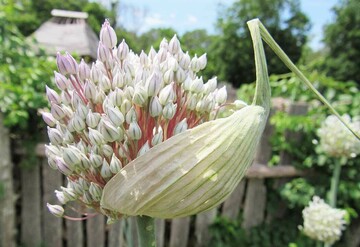
The new season and living history are in full bloom at Plimoth Patuxet! It is wonderful to have guests back with us. The return of students to the Main Campus is an annual reminder of the resplendency of our historic sites’ ability to not only transport people to the past, but also into a natural world of lush landscapes and sweeping water views. A young visitor was heard remarking, “Wow! There is so much nature here.” It is easy to overlook how important spaces such as Plimoth Patuxet are—places that are stripped of technological distraction and full of fresh air, trees, a light ocean breeze, and compelling stories of the past.
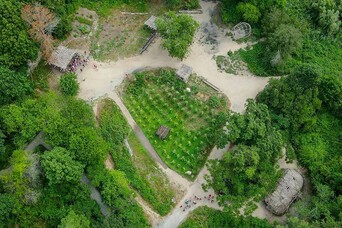
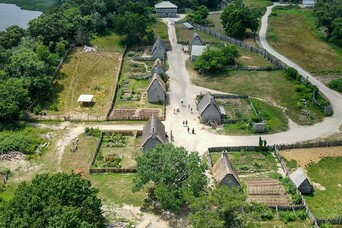
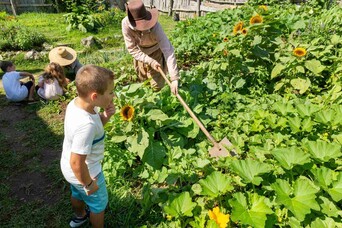
The arrival of spring ushers in a favorite event at the Museum, our Annual Spring Heirloom Plant Sale. The showcase of this yearly fundraising sale includes hundreds of starters cultivated by the Museum's dedicated horticulture volunteers. A longtime favorite among the gardening community, the Plant Sale features a bountiful and blooming selection of more than 100 types of heirloom species, including the Museum’s favorite herbs, vegetables, and flowers that are grown in the 17th-Century English Village.
Plants We Love and Grow at Plimoth Patuxet
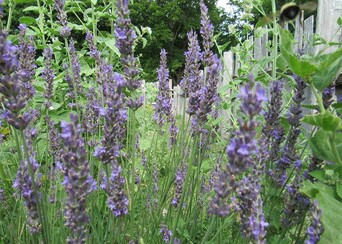
Betony
Stachys officinalis. Herbaceous perennial.
Betony was a much-loved herb during Elizabethan times and was used historically for its healing properties. It is a favorite of bees and historic gardeners. Betony is best planted in rich, moist soil and thrives in either full sun or partial shade.
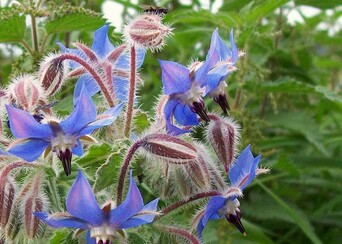
Borage
Borago officinalis. Annual.
A 2-3 ft. tall Bee Plant which produces many small blue, or occasionally pink, edible flowers. Tender leaves and star-shaped flowers have a mild cucumber flavor said to gladden the heart. Enjoys full sun and average garden soil. Will tolerate some shade.
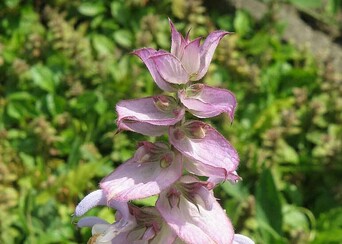
Clary Sage
Salvia sclarea. Biennial.
Called Clear Eye or Christ Eye in the 17th century and used historically for eye ailments. A hoary plant with broad basal rosette the first year and an erect, stout flower stalk to 3 ft. the second year. Flowers are predominantly blue, and sometimes pink or white. Self-sows. Plant in full sun or partial shade and in average garden soil.
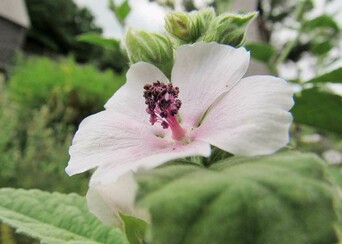
Marshmallow
Althaea officinalis. Perennial.
Historically the leaves were used in early spring salads. Roots were decocted for coughs, used to dress wounds, and in the making of confections. Marshmallow prefers moist soil and full sun.
Valerian
Valeriana officinalis. Perennial.
The root was used historically for its sedative action, to allay pain, nervous unrest, migraine, and insomnia. This non-addictive plant has been chemically replaced with valium. Valerian is a heavy feeder and does well with a side dressing of compost.
The Growing Impact of our Horticulture Volunteers
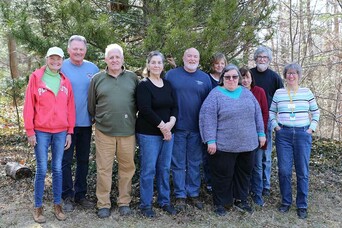
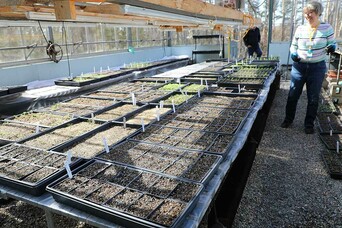
To make this beloved annual fundraiser happen, during the winter and spring Plimoth Patuxet’s fantastic horticulture volunteers propagated plants for the sale and for the Museum’s gardens. Every week they gather with Dr. Fred Dunford, the Museum’s Horticulture Lead and Public History Educator, to get to work. Their efforts enable the Museum to introduce the gardening public to heirloom plants that have a tradition of thriving in this region.
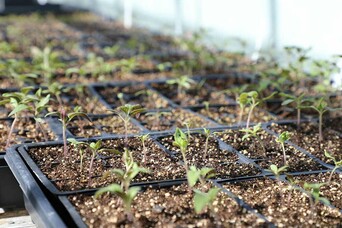
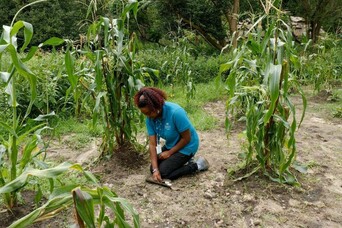
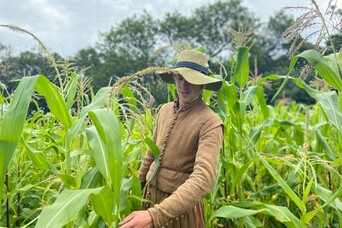
The horticulture volunteers create a sea of seedlings and a stockpile of starters for the public to enjoy and use in their own gardens to sow the seeds of history. Plimoth Patuxet is ever grateful for their loyal participation, willingness to get their hands dirty, and rooted investment in the Museum and its educational mission.
Thank you to this wonderful group who help ensure history will be in full bloom this season at the Museum!